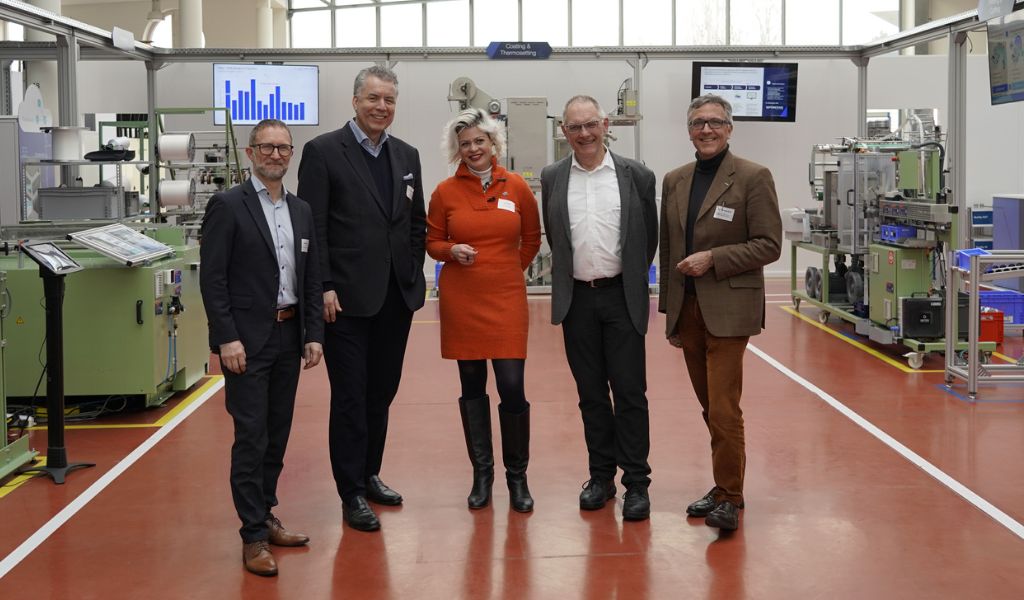Towards a systemic shift in the value chain
The complexity of the value chain in the textile and fashion industry is high. The value chain spans big parts of the globe, only a fraction of direly needed data is available and overproduction is more often the norm than the exception.
EIT Culture & Creativity, EIT Manufacturing and EIT Climate-KIC are joining forces to create the EIT Innovation Agenda Circular Textiles & Fashion. The first preparatory step was a workshop which took place in Aachen 3 March 2023. Hosted by Institut for Textiltechnik of RWTH Aachen, participants worked on identifying innovation-related pain points in the value chain.

From left to right: Bernd Fesel (interim CEO of EIT Culture & Creativity), Dr Christian Ehler (Member of the EU Parliament), Lisa Lang (Director Policy & EU Affairs Orchestrator EIT Climate KIC), Klaus Beetz (CEO EIT Manufacturing), Prof Thomas Gries (Director ITA Group and Professor at RWTH Aachen)
The workshop built on the co-creation process of the Textiles Ecosystem Transition Pathway.
For more information on the workshop, read this press release issued by EIT Culture & Creativity.
Why an Innovation Agenda Circular Textiles & Fashion?
EIT Culture & Creativity, EIT Manufacturing and EIT Climate-KIC initiate a comprehensive EIT Innovation Agenda
1. to support the European Textile and Fashion Sectors and Industries on its transition pathway to a circular model for Textile and Fashion, specially
2. to create novel, cross-sector innovation support programmes tuned to circular requirements
3. to empower large scale demonstrators in diverse regions in Europe for uptake and replication by industry
4. to scale training and skilling for deep tech talents to work in the forth coming circular Textile and Fashion Sectors and Industries
5. to initiate appropriate Special Vehicle Investment Funds
In the EU, the textiles and clothing sector is economically significant and can play a prominent role in the circular economy. It comprises more than 160.000 companies and employs 1.5 million people, generating a turnover of EUR 162 billion in 2019. 2030 textile products placed on the EU market are long-lived and recyclable, to a great extent made of recycled fibres, free of hazardous substances and produced in respect of social rights and the environment. Consumers benefit longer from high quality affordable textiles, fast fashion is out of fashion, and economically profitable re-use and repair services are widely available. In a competitive, resilient and innovative textiles sector, producers take responsibility for their products along the value chain, including when they become waste.
Source: EU Strategy for Sustainable and Circular Textiles, COM(2022) 141 final

